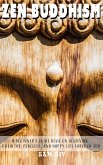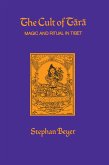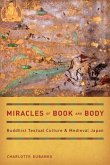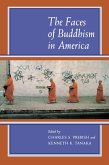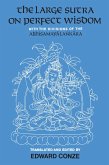The tradition of Chan Buddhism-more popularly known as Zen-has been romanticized throughout its history. In this book, John R. McRae shows how modern critical techniques, supported by recent manuscript discoveries, make possible a more skeptical, accurate, and-ultimately-productive assessment of Chan lineages, teaching, fundraising practices, and social organization. Synthesizing twenty years of scholarship, Seeing through Zen offers new, accessible analytic models for the interpretation of Chan spiritual practices and religious history.
Writing in a lucid and engaging style, McRae traces the emergence of this Chinese spiritual tradition and its early figureheads, Bodhidharma and the "sixth patriarch" Huineng, through the development of Zen dialogue and koans. In addition to constructing a central narrative for the doctrinal and social evolution of the school, Seeing through Zen examines the religious dynamics behind Chan's use of iconoclastic stories and myths of patriarchal succession. McRae argues that Chinese Chan is fundamentally genealogical, both in its self-understanding as a school of Buddhism and in the very design of its practices of spiritual cultivation. Furthermore, by forgoing the standard idealization of Zen spontaneity, we can gain new insight into the religious vitality of the school as it came to dominate the Chinese religious scene, providing a model for all of East Asia-and the modern world. Ultimately, this book aims to change how we think about Chinese Chan by providing new ways of looking at the tradition.
Writing in a lucid and engaging style, McRae traces the emergence of this Chinese spiritual tradition and its early figureheads, Bodhidharma and the "sixth patriarch" Huineng, through the development of Zen dialogue and koans. In addition to constructing a central narrative for the doctrinal and social evolution of the school, Seeing through Zen examines the religious dynamics behind Chan's use of iconoclastic stories and myths of patriarchal succession. McRae argues that Chinese Chan is fundamentally genealogical, both in its self-understanding as a school of Buddhism and in the very design of its practices of spiritual cultivation. Furthermore, by forgoing the standard idealization of Zen spontaneity, we can gain new insight into the religious vitality of the school as it came to dominate the Chinese religious scene, providing a model for all of East Asia-and the modern world. Ultimately, this book aims to change how we think about Chinese Chan by providing new ways of looking at the tradition.
Dieser Download kann aus rechtlichen Gründen nur mit Rechnungsadresse in A, D ausgeliefert werden.



